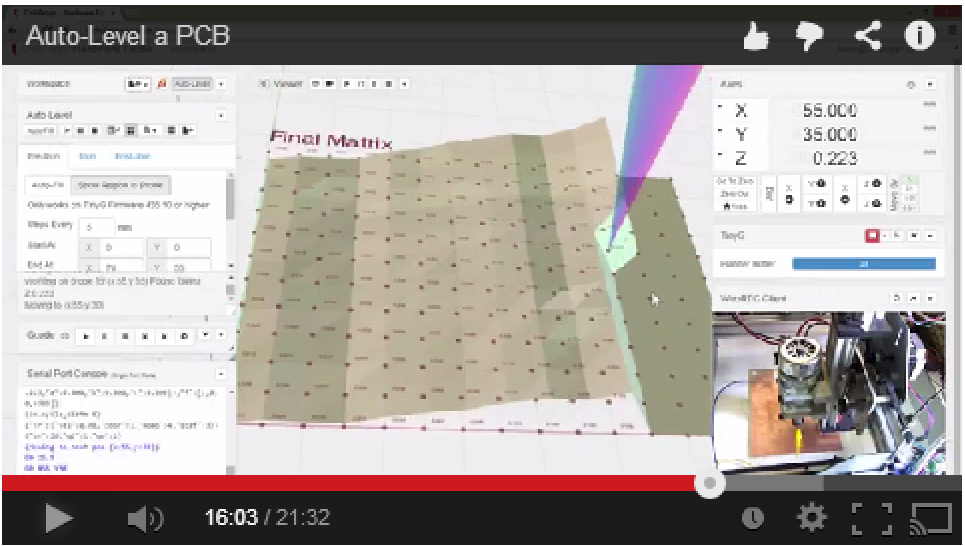Forum Replies Created
-
AuthorPosts
-
jlauer
MemberThis sounds like Java’s garbage collection. It “stops the world” when it needs to start collecting and that can kill your Gcode from sending smoothly. When you say it keeps being slow on the next run that feels for sure like garbage collection.
Try out http://chilipeppr.com/tinyg and run the job. Does that work better? Chrome’s Javascript garbage collection is amazing.
jlauer
MemberYou are in luck. Just launched a Macro widget inside ChiliPeppr Hardware Fiddle. If you go to the TinyG workspace at http://chilipeppr.com/tinyg you will see the new widget in the Workspace toolbar.
Check out the “Watch Gcode Response” sample script for a really awesome way to see what your Gcode is doing and respond to it.

jlauer
MemberIt looks like you’re in luck. Just released an Auto-Level for TinyG inside ChiliPeppr Hardware Fiddle. http://chilipeppr.com/tinyg
jlauer
MemberOk, nailed it. I was able to use the Three.js library to do raycasting onto my mesh from the G38.2 command. That enables me to offset the Z. Here’s what it looks like.
At start of process you see region you’ll probe.
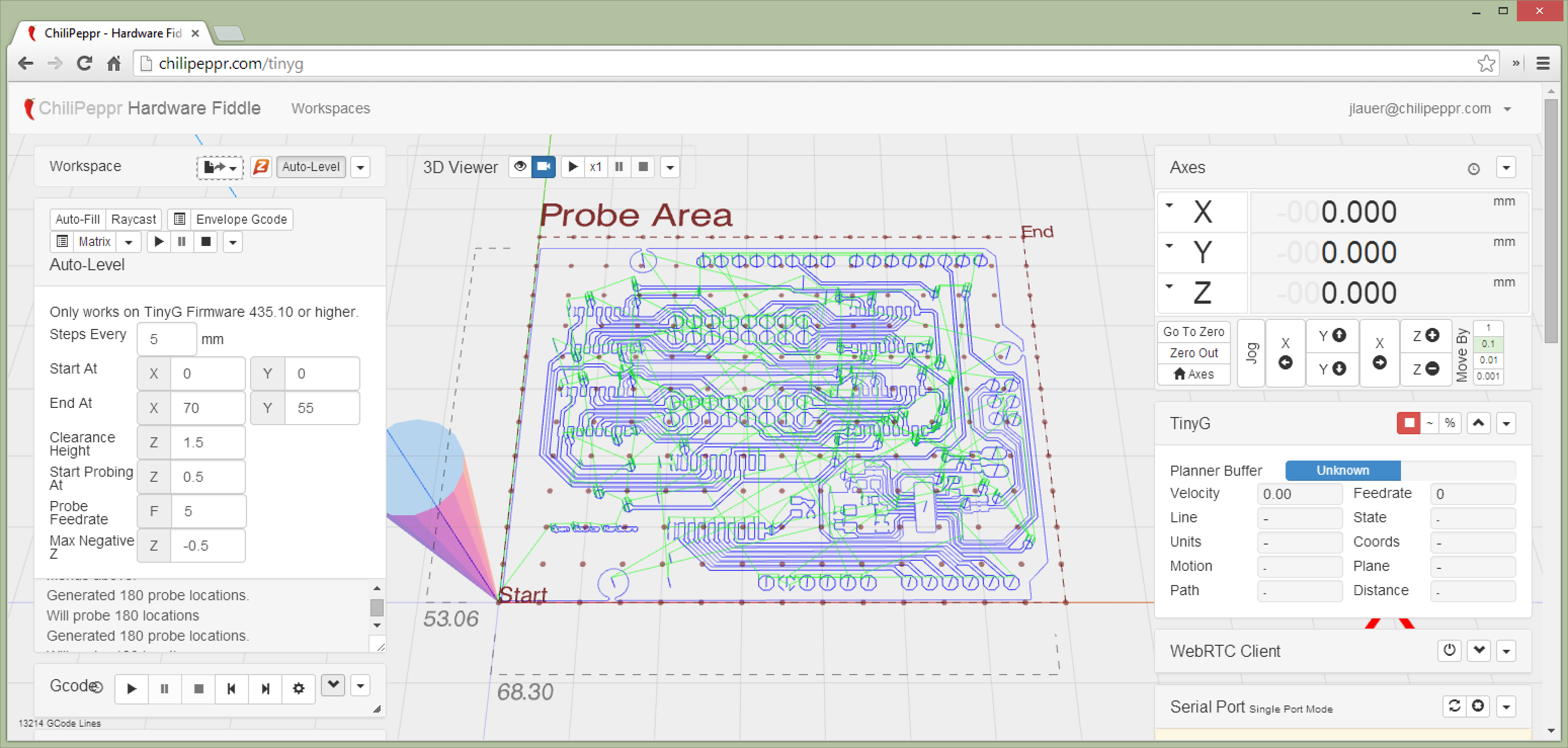
After probing you see your matrix. This is exaggerated 10x only.
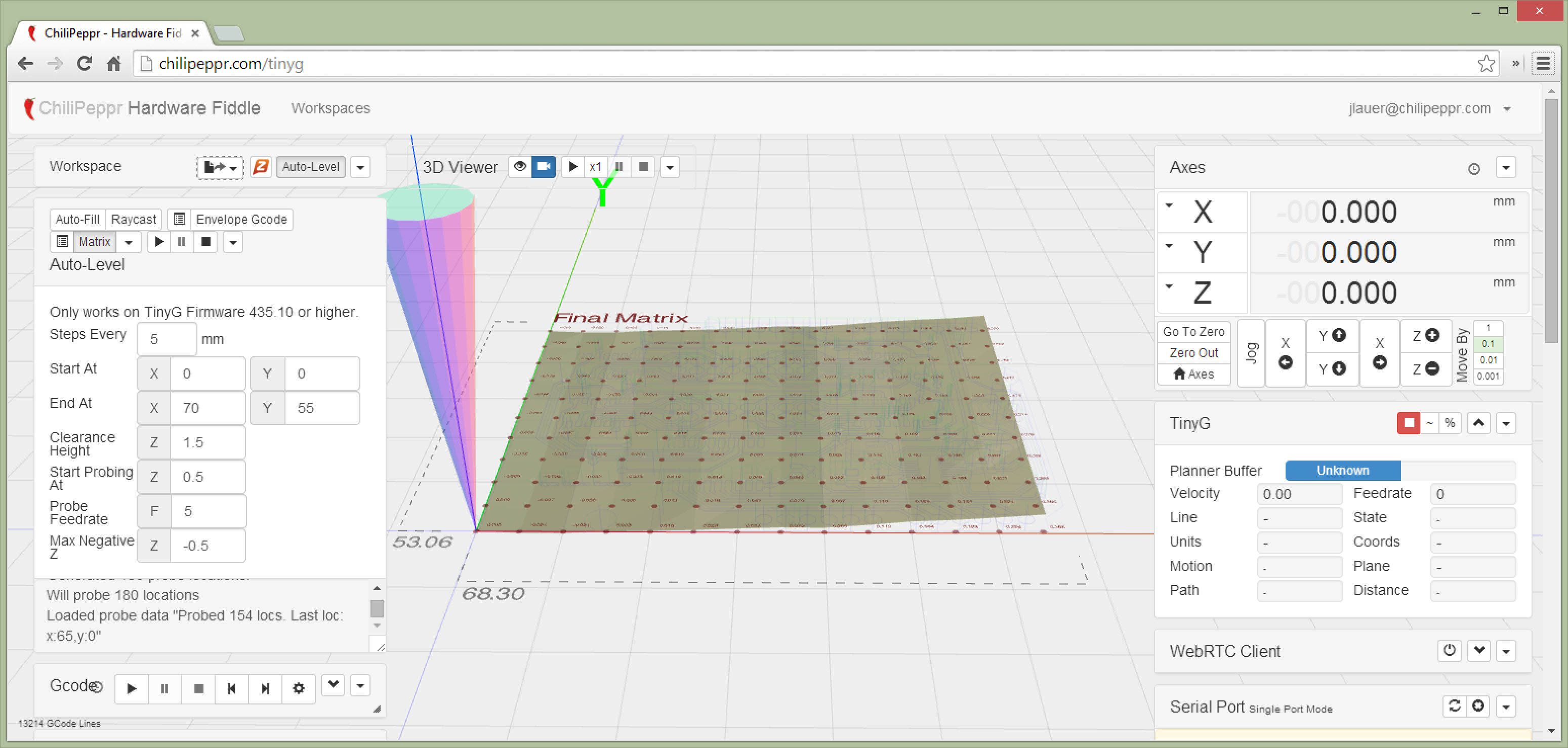
Then you can view your raycasted PCB Gcode morphed to the probe data.
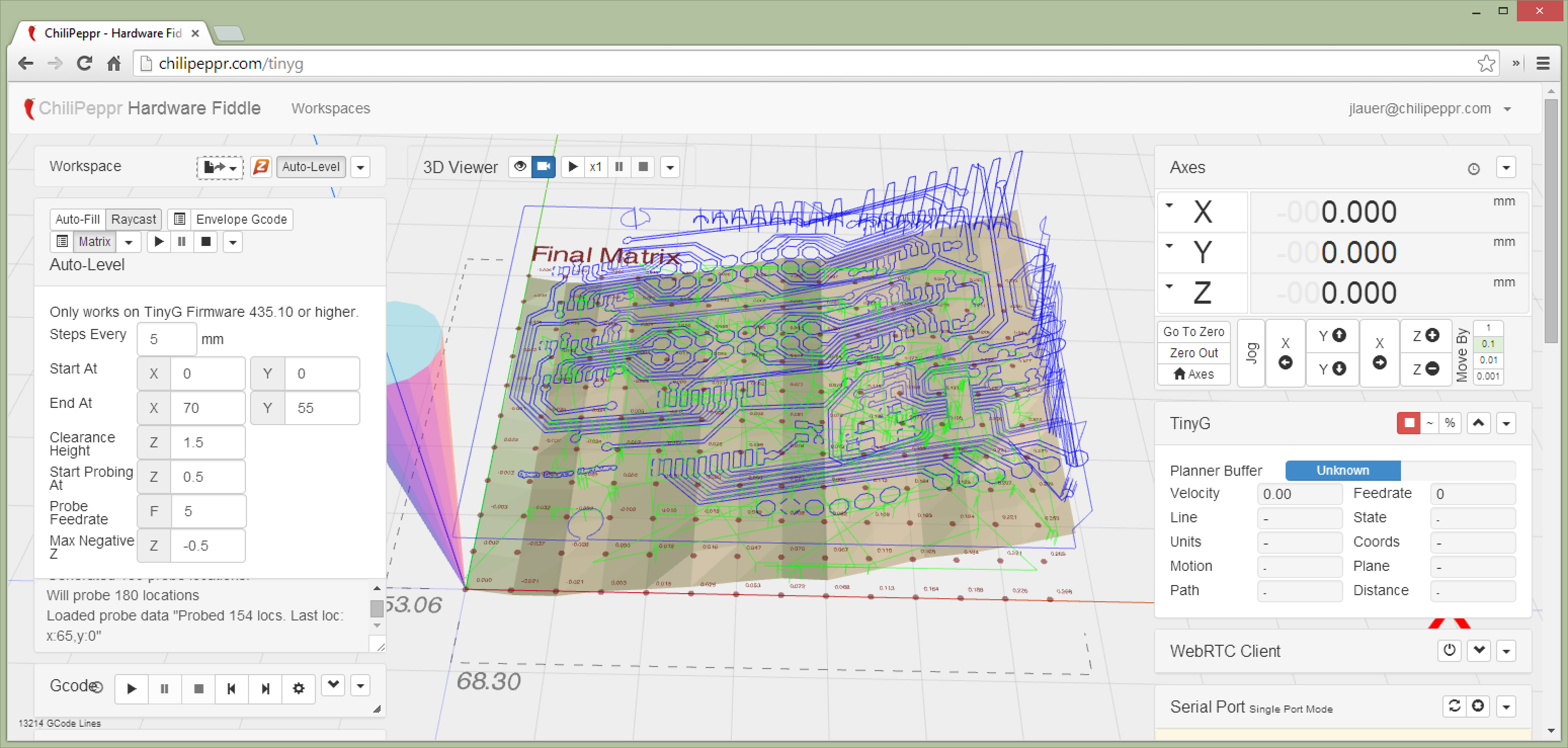
Then you get your final modified Gcode. Lines with Z’s get modified. Every G0/G1 without a Z gets a Z added to get best possible chance of matching probe warpage. Only problem remaining is splitting long G1 moves into sub-G1 moves to get better matching of warpage.
G00 Z2.0000 (al z mod 2) G00 X0.0000 Y0.0000 Z2.0000 (al new z) M03 G4 P3.000000 G00 X0.3147 Y0.3788 Z1.9983 (al new z) G01 Z-0.1017 F254.00 (al z mod -0.1) G01 X0.2800 Y0.4626 F508.00 Z-0.1015 (al new z) G01 X0.2800 Y52.8773 Z-0.1015 (al new z) G01 X0.3147 Y52.9612 Z-0.1015 (al new z) G01 X0.3788 Y53.0253 Z-0.1015 (al new z) G01 X0.4626 Y53.0600 Z-0.1015 (al new z) G01 X14.6826 Y53.0600 Z-0.1015 (al new z) G01 X14.7078 Y53.0495 Z-0.1015 (al new z)jlauer
MemberFlux, you are awesome. Totally worked. Had no idea that was a new feature. It’s EXACTLY what I needed. Check out the results of running the new auto-leveller inside http://chilipeppr.com/tinyg
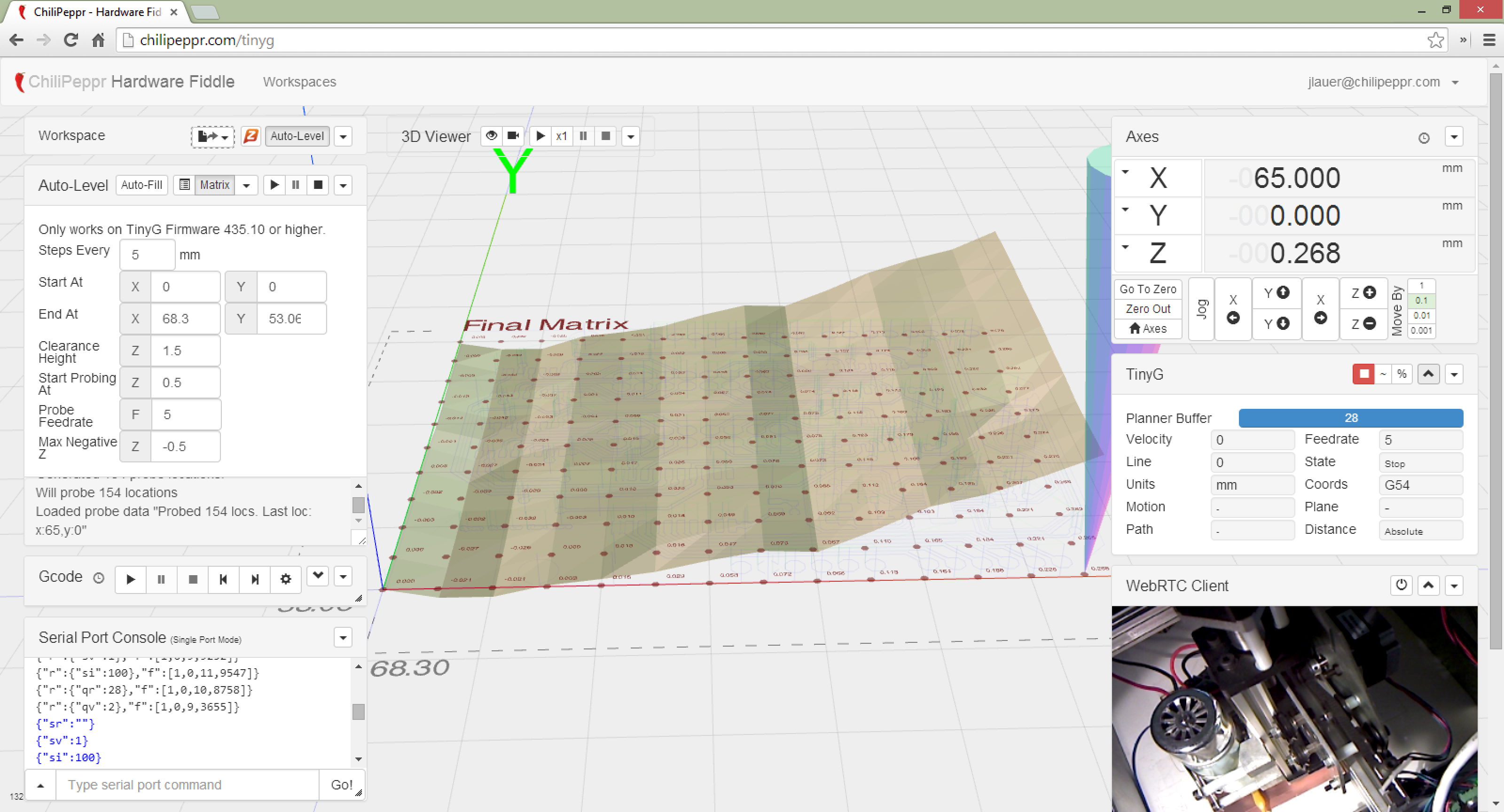
The results of the PCB auto-leveller in the image are exaggerated by 50x to help see the warpage. In the worst-case I have a 0.28mm rise from lower left to upper right. That’s a big deal which is exactly why I want to auto-level.
Question for you? How are you then converting your auto-level data to adjust Z-heights in your Gcode?
-
This reply was modified 10 years, 11 months ago by
jlauer.
jlauer
MemberHi Ted,
I’d suggest trying the ChiliPeppr app to send. I put a lot of flow control into the app by watching the planner buffer on the TinyG. I also use the RTS/CTS flow control as another layer. Just go to http://chilipeppr.com/tinyg to run the app in your browser. You will have to download the Serial Port JSON server to your local box with the serial port, but can run the web app on any machine remotely.
Curious if this will solve your problem.
-John -
This reply was modified 10 years, 11 months ago by
-
AuthorPosts

